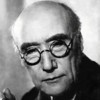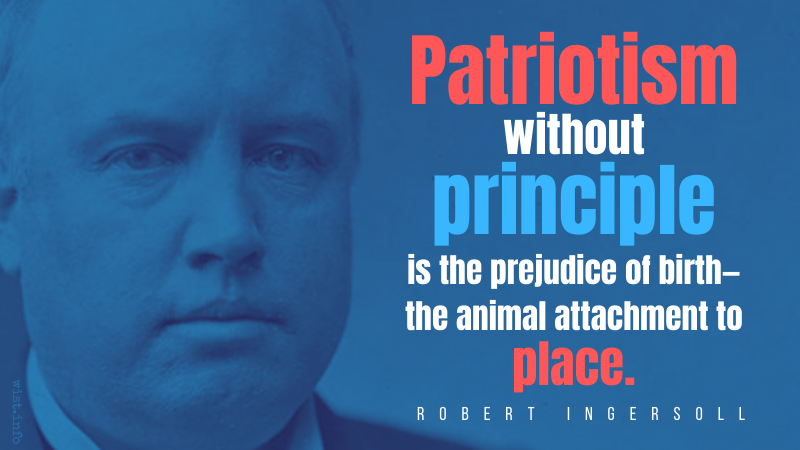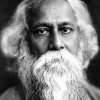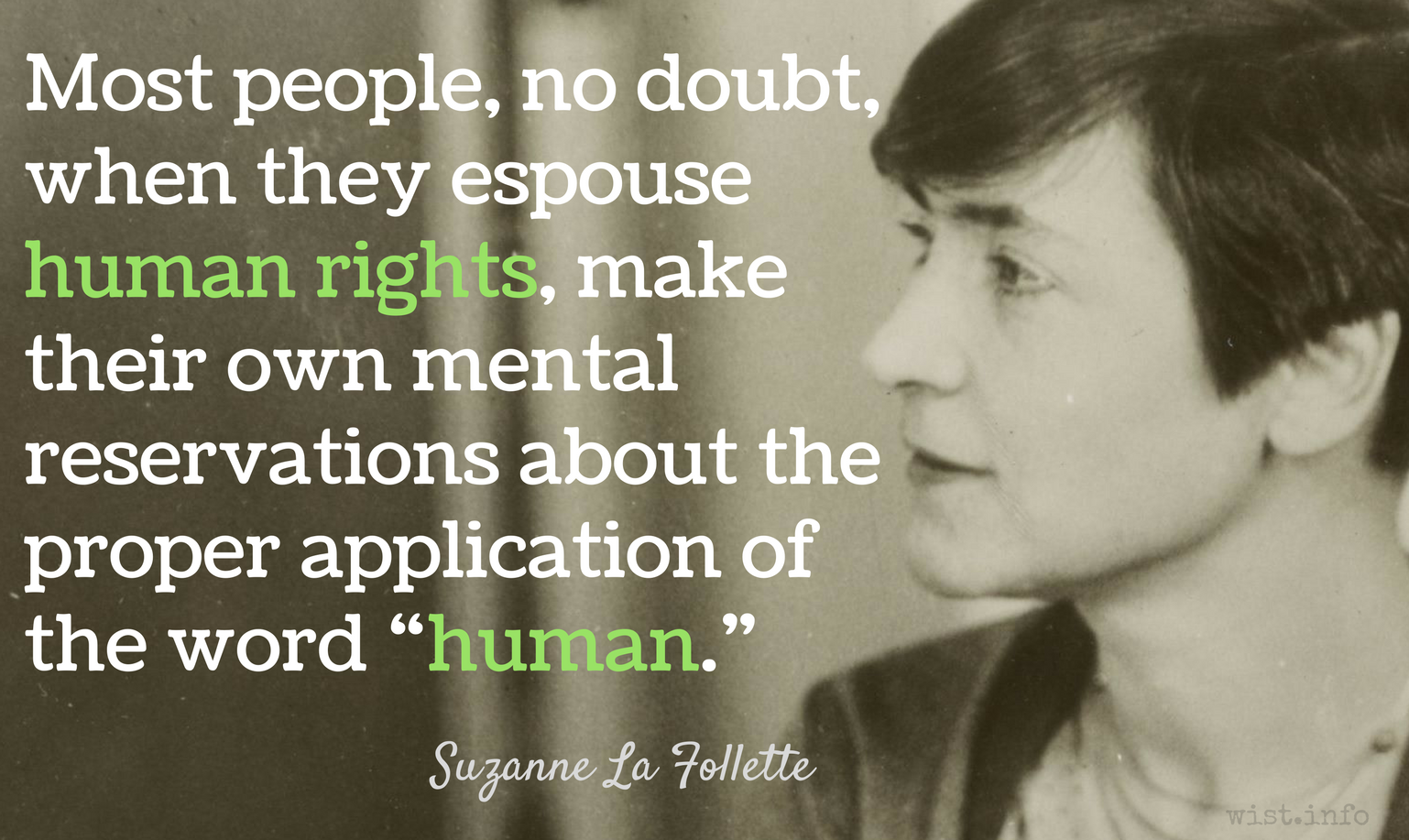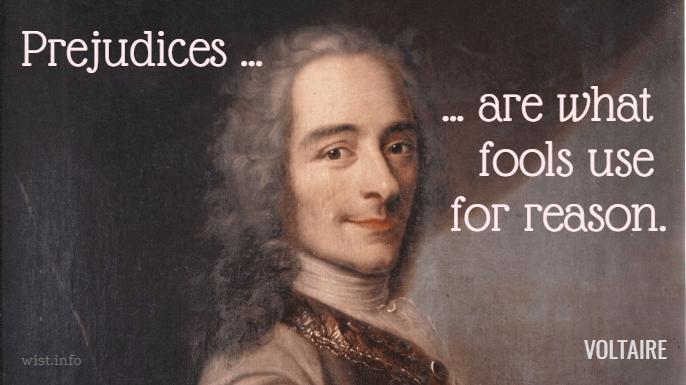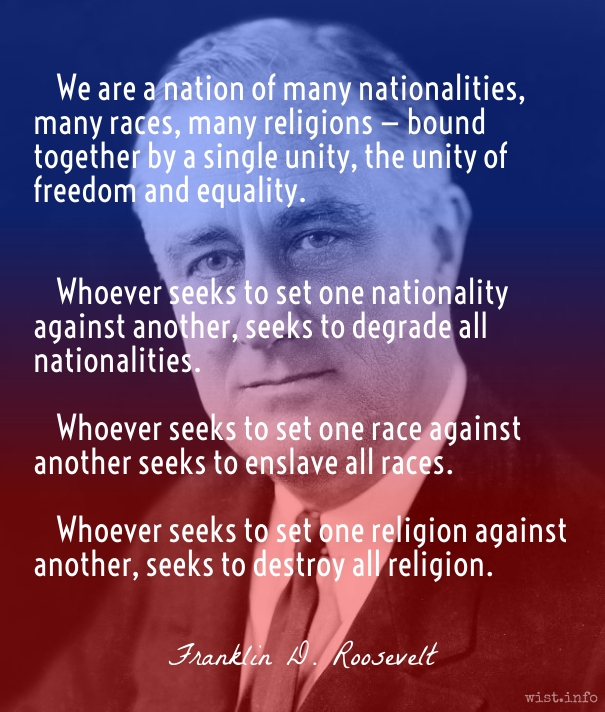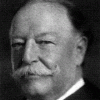What I have come to recognize is that just as “the black problem” turned out to be a problem of white racism, just as “the woman problem” turned out to be a problem of male sexism, so “the homosexual problem” is really the homophobia of many heterosexuals.
William Sloane Coffin, Jr. (1924-2006) American minister, social activist
The Courage to Love, ch. 5 (1982)
(Source)
Quotations about:
prejudice
Note not all quotations have been tagged, so Search may find additional quotes on this topic.
Most often people seek in life occasions for persisting in their opinions rather than for educating themselves.
André Gide (1869-1951) French author, Nobel laureate
“An Unprejudiced Mind,” sec. 1, Pretexts (1959) [ed. O’Brien (1964)]
(Source)
Once a man’s understanding has settled on something (either because it is an accepted belief or because it pleases him), it draws everything else also to support and agree with it. And if it encounters a larger number of more powerful countervailing examples, it either fails to notice them, or disregards them, or makes fine distinctions to dismiss and reject them, and all of this with much dangerous prejudice, to preserve the authority of its first conceptions.
[Intellectus humanus in iis quae semel placuerunt (aut quia recepta sunt et credita, aut quia delectant), alia etiam omnia trahit ad suffragationem et consensum cum illis: et licet major sit instantiarum vis et copia, quae occurrunt in contrarium; tamen eas aut non observat, aut contemnit, aut distinguendo summovet et rejicit, non sine magno et pernicioso praejudicio, quo prioribus illis syllepsibus authoritas maneat inviolata.]
Francis Bacon (1561-1626) English philosopher, scientist, author, statesman
Instauratio Magna [The Great Instauration], Part 2 “Novum Organum [The New Organon],” Book 1, Aphorism # 46 (1620) [tr. Silverthorne (2000)]
(Source)
(Source (Latin)). Alternate translations:
The human understanding, when any preposition has been once laid down, (either from general admission and belief, or from the pleasure it affords,) forces every thing else to add fresh support and confirmation; and although more cogent and abundant instances may exist to the contrary, yet either does not observe or despises them, or gets rid of and rejects them by some distinction, with violent and injurious prejudice, rather than sacrifice the authority of its first conclusions.
[tr. Wood (1831)]
The human understanding when it has once adopted an opinion (either as being the received opinion or as being agreeable to itself) draws all things else to support and agree with it. And though there be a greater number and weight of instances to be found on the other side, yet these it either neglects and despises, or else by some distinction sets aside and rejects; in order that by this great and pernicious predetermination the authority of its former conclusions may remain inviolate.
[tr. Spedding (1858)]
The human Intellect, in those things which have once pleased it (either because they are generally received and believed, or because they suit the taste), brings everything else to support and agree with them; and though the weight and number of contradictory instances be superior, still it either overlooks or despises them, or gets rid of them by creating distinctions, not without great and in jurious prejudice, that the authority of these previous conclusions may be maintained inviolate.
[tr. Johnson (1859)]
Once a human intellect has adopted an opinion (either as something it likes or as something generally accepted), it draws everything else in to confirm and support it. Even if there are more and stronger instances against it than there are in its favour·, the intellect either overlooks these or treats them as negligible or does some line-drawing that lets it shift them out of the way and reject them. This involves a great and pernicious prejudgment by means of which the intellect’s former conclusions remain inviolate.
[tr. Bennett (2017)]
My first job after college was as a teacher in Cotulla, Texas, in a small Mexican-American school. Few of them could speak English, and I couldn’t speak much Spanish. My students were poor and they often came to class without breakfast, hungry. They knew even in their youth the pain of prejudice. They never seemed to know why people disliked them. But they knew it was so, because I saw it in their eyes. I often walked home late in the afternoon, after the classes were finished, wishing there was more that I could do. But all I knew was to teach them the little that I knew, hoping that it might help them against the hardships that lay ahead.
Somehow you never forget what poverty and hatred can do when you see its scars on the hopeful face of a young child.Lyndon B. Johnson (1908-1973) American politician, educator, US President (1963-69)
Speech (1965-03-15), “The American Promise,” Joint Session of Congress [40:55]
(Source)
The superstition into which we’re born,
Even when we recognize it, loses not
Its power on us! Not all those are free
Who ridicule their chains.[Der Aberglaub’, in dem wir aufgewachsen,
Verliert, auch wenn wir ihn erkennen, darum
Doch seine Macht nicht über uns. — Es sind
Nicht alle frei, die ihrer Ketten spotten.]Gotthold Lessing (1729-1781) German playwright, philosopher, dramaturg, writer
Nathan the Wise [Nathan der Weise], Act 4, sc. 4 [Templar] (1779) [tr. Corbett (1883)]
(Source)
(Source (German)). Alternate translations:
Yet the superstition
in which we have grown up, not therefore loses
when we detect it, all its influence on us.
Not all are free that can bemock their fetters.
[tr. Taylor (1790)]
The superstition in which we grew up,
Does not cease influencing us, e'en after
We have discover'd its absurdity.
Not all are free who do bemock their fetters.
[tr. Reich (1860)]
The superstition in which we were brought up never loses its power over us, even after we understand it.
[Source (1866)]
And yet the superstitions we have learned
From education, do not lose their power
When we have found them out; nor are all free
Whose judgment mocks the galling chains they wear.
[tr. Boylan (1878)]
The superstition in which we have grown up
Does not lose (even if we see through it)
Its power on us, on that account;
All are not free who mock their chains.
[tr. Jacks (1894)]
The superstitions of our early years,
E'en when we know them to be nothing more,
Lose not for that their hold upon our hearts;
Not all are free who ridicule their chains.
[tr. Maxwell (1917)]
The superstition in which we have grown up does not lose its power over us even for the reason that we recognize it as such. Not all are free who mock their chains.
[tr. Reinhardt (1950)]
The superstition in which we grew up,
Though we may recognize it, does not lose
Its power over us -- Not all are free
Who make mock of their chains.
[tr. Morgan (1955)]
Merely because we see the defects of the superstition we grew up in, it doesn't lose its hold upon our souls! Those men who mock their chains are not all free!
[tr. Ade (1972)]
I have heard people say we should be strong so that if there is another war we can win it, then show the world the right way to live afterward. This is old stuff, and it is poppycock. Our behavior hardly qualifies us as world leaders. Ours is one of the most conservative governments in the world today, and one of the most bumbling. We have more provincialism and bigotry and superstition and prejudice per square mile than almost any other nation. We like to think of ourselves as a young, progressive country, but, while we do have energy, we have become smug and self-satisfied.
Prejudice in favour of one’s own country, combined with national pride, makes us forget that reason is found in every land, and sound thoughts wherever there are men. We should not like to be thus treated by those whom we call barbarians; and if we ourselves display a certain barbarism, this consists in being panic-stricken at seeing men of another nation reason as we do ourselves.
[La prévention du pays, jointe à l’orgueil de la nation, nous fait oublier que la raison est de tous les climats, et que l’on pense juste partout où il y a des hommes. Nous n’aimerions pas à être traités ainsi de ceux que nous appelons barbares; et s’il y a en nous quelque barbarie, elle consiste à être épouvantés de voir d’autres peuples raisonner comme nous.]
Jean de La Bruyère (1645-1696) French essayist, moralist
The Characters [Les Caractères], ch. 12 “Of Opinions [Des Jugements],” § 22 (12.22) (1688) [tr. Stewart (1970)]
(Source)
(Source (French)). Alternate translations:
Our prepossession in favour of our Country, join'd to the pride of our Nation, makes us forget that Reason belongs to all Climates, and just Thoughts to all places where there are Men. We should not like to be so treated by those we call Barbarians; if amongst us there is any barbarity, it is in being amaz'd at the hearing other People reason like our selves.
[Curll ed. (1713)]
Our Prepossession in the Favour of our Country, joined to a national Pride, makes us forget that Reason is the Growth of all Climates, and that a Justness of Sentiment is not limited to a Part of Europe: It would enrage us to be so treated by those whom we are pleased to call Barbarians; if amongst us there is any Barbarism, 'tis in being amazed at hearing other People reason like ourselves.
[Browne ed. (1752)]
Our prepossession in favour of our native country and our national pride makes us forget that common sense is found in all climates, and correctness of thought wherever there are men. We should not like to be so treated by those we call barbarians; and if some barbarity still exists amongst us, it is in being amazed on hearing natives of other countries reason like ourselves.
[tr. Van Laun (1885)]
It is assumed that the skeptic has no bias; whereas he has a very obvious bias in favor of skepticism.
Gilbert Keith Chesterton (1874-1936) English journalist and writer
“The Error of Impartiality,” All Things Considered (1908)
(Source)
Race hatred is one of the most cruel and least civilised emotions to which men in the mass are liable, and it is of the utmost importance for human progress that every possible method of diminishing it should be adopted.
Bertrand Russell (1872-1970) English mathematician and philosopher
“On Race Hatred,” New York American (1933-05-24)
(Source)
Narrow-mindedness: allowing one’s prejudices to become convictions.
Marcelene Cox (1900-1998) American writer, columnist, aphorist
“Ask Any Woman” column, Ladies’ Home Journal (1944-06)
(Source)
Most people learn nothing from experience, except confirmation of their prejudices.
Bertrand Russell (1872-1970) English mathematician and philosopher
“The Lessons of Experience,” New York American (1931-09-23)
(Source)
I happen to think the singular evil of our time is prejudice. It is from this evil that all other evils grow and multiply. In almost everything I’ve written there is a thread of this: man’s seemingly palpable need to dislike someone other than himself.
Rod Serling (1924-1975) American screenwriter, playwright, television producer, narrator
“Serling in Creative Mainstream,” interview by Ellen Cameron May, Los Angeles Times (1967-06-25)
(Source)
Quoted in Anne Serling, As I Knew Him: My Dad, Rod Serling, ch. 8 (2013).
To foreign climes a man must sometimes roam,
In quest of things he cannot find at home;
For Frenchmen Germans have no strong affection,
But to their wines we seldom make objection.[Man kann nicht stets das Fremde meiden
Das Gute liegt uns oft so fern.
Ein echter deutscher Mann mag keinen Franzen leiden,
Doch ihre Weine trinkt er gern.]Johann Wolfgang von Goethe (1749-1832) German poet, statesman, scientist
Faust: a Tragedy [eine Tragödie], Part 1, sc. 8 “Auerbach’s Cellar,” l. 2270ff [Brander] (1808-1829) [tr. Blackie (1880)]
(Source)
Some translations (and this site) include the Declaration, Prelude on the Stage, and Prologue in Heaven as individual scenes; others do not, leading to their Part 1 scenes being numbered three lower.
(Source (German)). Alternate translations:
We can't quite shun the Foreign, howe'er we may determine;
The Good is oft so far away.
Your Frenchman's poison to your true-born German,
But your French wines he'd drink all day.
[tr. Latham (1790)]
What's foreign we can't always shun,
So far from us must good things often be.
A genuine German can't abide the French, not one,
But of their wines he drinks most cheerfully.
[tr. Priest (1808)]
One cannot always avoid what is foreign; what is good often lies so far off. A true German cannot abide Frenchmen, but willingly drinks their wines.
[tr. Hayward (1831)]
What foreign is one always can't decline,
What's good is often scatter'd far apart.
The French your genuine German hates with all his heart,
Yet has a relish for their wine.
[tr. Swanwick (1850)]
Hankerings for foreign things will sometimes haunt you,
The good so far one often finds;
Your real German man can't bear the French, I grant you,
And yet will gladly drink their wines.
[tr. Brooks (1868)]
What's foreign one can't always keep quite clear of,
For good things, oft, are not so near;
A German can't endure the French to see or hear of,
Yet drinks their wines with hearty cheer.
[tr. Taylor (1870)]
Sometimes one can't abstain from foreign stuff,
what is good lies often far away.
A German of fine blood dislikes the French,
but he enjoys their wines the better.
[tr. Salm (1962)]
One can't become one country's henchman,
Much good hails from a distant spot;
Your proper German can't abide a Frenchman,
But likes French vintages a lot.
[tr. Arndt (1976)]
You can't always avoid what's foreign,
About pleasure I'm not partisan.
A man who's a true German can't stand Frenchmen,
But he can stand their wine, oh yes he can!
[tr. Greenberg (1992)]
You must admit sometimes, I know it's sad,
But foreign stuff is really not that bad.
Us Germans just can't stand the Frogs, but then
We like to drink their wine now and again.
[tr. Williams (1999)]
We can’t always shun what’s foreign,
Things from far away are often fine.
Real Germans can’t abide a Frenchman,
And yet they gladly drink his wine.
[tr. Kline (2003)]
Today, as in ages past, we are not without tragic proof that the exalted power of some governments to punish manufactured crime dictatorially is the handmaid of tyranny. Under our constitutional system, courts stand against any winds that blow as havens of refuge for those who might otherwise suffer because they are helpless, weak, outnumbered, or because they are non-conforming victims of prejudice and public excitement. Due process of law, preserved for all by our Constitution, commands that no such practice as that disclosed by this record shall send any accused to his death. No higher duty, no more solemn responsibility, rests upon this Court, than that of translating into living law and maintaining this constitutional shield deliberately planned and inscribed for the benefit of every human being subject to our Constitution — of whatever race, creed or persuasion.
Hugo Black (1886-1971) American politician and jurist, US Supreme Court Justice (1937-71)
Chambers v. Florida, 309 U.S. 227, 241 (1940) [majority opinion]
(Source)
Finding coerced confessions that led to the death penalty conviction of four Black men in Florida were a violation of the Due Process clause of the 14th Amendment.
Never try to reason the prejudice out of a man. It was not reasoned into him and cannot be reasoned out.
Sydney Smith (1771-1845) English clergyman, essayist, wit
(Attributed)
Variant: "Never try to reason the prejudice out of a man. It was never reasoned into him and it never can be reasoned out of him."
Widely attributed to Smith, but not found in his works. On occasion cited to his Elementary Sketches of Moral Philosophy, but not found there. Most likely a variation or misattribution of this Jonathan Swift quotation.
Patriotism without principle is the prejudice of birth — the animal attachment to place.
Robert Green Ingersoll (1833-1899) American lawyer, agnostic, orator
Decoration Day Speech, Academy of Music, New York City (29 May 1882)
(Source)
There were four things the Master abstained from entirely: he did not speculate, he did not claim or demand certainty, he was not inflexible, and he was not self-absorbed.
[子絕四、毋意、毋必、毋固、毋我]
Confucius (c. 551- c. 479 BC) Chinese philosopher, sage, politician [孔夫子 (Kǒng Fūzǐ, K'ung Fu-tzu, K'ung Fu Tse), 孔子 (Kǒngzǐ, Chungni), 孔丘 (Kǒng Qiū, K'ung Ch'iu)]
The Analects [論語, 论语, Lúnyǔ], Book 9, verse 4 (9.4) (6th C. BC – 3rd C. AD) [tr. Ames/Rosemont (1998)]
(Source)
Different versions of the Analects take these four items in slightly differing order, reflected in the translations below. (Source (Chinese)). Alternate translations:
There were four things from which the Master was entirely free. He had no foregone conclusions, no arbitrary predeterminations, no obstinacy, and no egoism.
[tr. Legge (1861)]
The Master barred four (words); - he would have no "shall"s, no "must"s, no "certainly"s, no "I"s.
[tr. Jennings (1895)]
There were four things from which Confucius was entirely free : He was free from self-interest, from prepossessions, from bigotry and from egoism.
[tr. Ku Hung-Ming (1898)]
The Master was entirely free from four things: he had no preconceptions, no pre-determinations, no obduracy, and no egoism.
[tr. Soothill (1910)]
He was cut off from four things; he had no prejudices, no categoric imperatives, no obstinacy or no obstinate residues, no time-lags, no egotism.
[tr. Pound (1933); yes, that looks to be five things]
There are four things that the Master wholly eschewed: he took nothing for granted, he was never over-positive, never obstinate, never egotistic.
[tr. Waley (1938)]
The Master recognized four prohibitions; Do not be swayed by personal opinion; recognize no inescapable necessity; do not be stubborn; do not be egotistic.
[tr. Ware (1950)]
He denounced (or tried to avoid completely) four things: arbitrariness of opinions, dogmatism, narrow-mindedness and egotism.
[tr. Lin Yutang (1938)]
There were four things the Master refused to have anything to do with: he refused to entertain conjectures or insist on certainty; he refused to be inflexible or to be egotistical.
[tr. Lau (1979)]
The Master cut out four things. He never took anything for granted, he never insisted on certainty, he was never inflexible and never egotistical.
[tr. Dawson (1993)]
The Master absolutely eschewed four things: capriciousness, dogmatism, willfulness, self-importance.
[tr. Leys (1997)]
The Master was absolutely free from four things: free from conjecture, free from arbitrariness, free from obstinacy, free from egoism.
[tr. Huang (1997)]
Confucius prohibited the four points: no wantonness, no dictatorship, no stubbornness, and no arrogance.
[tr. Cai/Yu (1998)]
The Master avoided four things: no wish, no will, no set, no self.
[tr. Brooks/Brooks (1998); they further interpret, "no fixed opinions, no foregone conclusions, no stubbornness, no self-absorption"]
The Master had freed himself of four things: idle speculation, certainty, inflexibility, and conceit.
[tr. Hinton (1998)]
The Master observed four prohibitions: no willfulness, no obstinacy, no narrow-mindedness, no egotism.
[tr. Watson (2007)]
The Master stayed away from four things: he did not put forth theories or conjectures; he did not think he must be right; he was not obdurate; he was not self-centered.
[tr. Annping Chin (2014)]
Confucius has four ultimate mindsets for perfect: no prejudice, no absolute must, no fixation, no self.
[tr. Li (2020)]
Are you tough enough to face one of the uglier stains upon the fabric of our democracy, prejudice? It’s the basic root of most evil. It’s a part of the sickness of man. And it’s a part of man’s admission, his constant sick admission, that to exist he must find a scapegoat. To explain away his own deficiencies, he must try to find someone who he believes more deficient. If you find yourself thinking words like “Nigger”, or “Kike”, or “Pollock”, or “Wop”, or “Bohunk”, or “Sheenie”, or “Dago”, consign them to the lexicon of race-haters who aren’t fit to breathe the same air as you are. Make your judgment of your fellow-man on what he says and what he believes and the way he acts. Be tough enough, please, to live with prejudice and give battle to it. It warps, it poisons, it distorts and it is self-destructive. It has fallout worse than a bomb … and worst of all it cheapens and demeans anyone who permits himself the luxury of hating.
Rod Serling (1924-1975) American screenwriter, playwright, television producer, narrator
Commencement Address, Binghamton Central High School, Binghamton, New York (28 Jan 1968)
(Source)
There is a bitter sadness and special irony that attends the passing of Martin Luther King. Quickly and with ease, we offer up a chorus of posthumous praise — the ritual dirge so time-honored and comfortable and undemanding of anything but rhetoric. In death, we offer the acknowledgement of the man and his dream that we denied him in life.
In his grave, we praise him for his decency — but when he walked amongst us, we responded with no decency of our own. When he suggested that all men should have a place in the sun — we put a special sanctity on the right of ownership and the privilege of prejudice by maintaining that to deny homes to Negroes was a democratic right.
Now we acknowledge his compassion — but we exercised no compassion of our own. When he asked us to understand that men take to the streets out of anguish and hopelessness and a vision of that dream dying, we bought guns and speculated about roving agitators and subversive conspiracies and demanded law and order.
We felt anger at the effects, but did little to acknowledge the causes. We extol all the virtues of the man — but we chose not to call them virtues before his death. And now, belatedly, we talk of this man’s worth — but the judgment comes late in the day as part of a eulogy when it should have been made a matter of record while he existed as a living force.
Rod Serling (1924-1975) American screenwriter, playwright, television producer, narrator
Letter to the Editor, Los Angeles Times (8 Apr 1968)
(Source)
Quoted in Anne Serling, As I Knew Him: My Dad, Rod Serling (2013).
What vitiates nearly all that is written about antisemitism is the assumption in the writer’s mind that he himself is immune to it. “Since I know that antisemitism is irrational,” he argues, “it follows that I do not share it.” He thus fails to start his investigation in the one place where he could get hold of some reliable evidence — that is, in his own mind.
George Orwell (1903-1950) English writer [pseud. of Eric Arthur Blair]
“Antisemitism in Britain,” Contemporary Jewish Record (1945-04)
(Source)
Americans today often speak of racial prejudice as a thing that simply exists — like air — with no nod to the actual work it takes to create and maintain systems based upon prejudice.
Annette Gordon-Reed (b. 1958) American historian, law professor, author
“The Captive Aliens Who Remain Our Shame,” New York Review of Books (19 Jan 2017)
(Source)
Racism in America is like dust in the air. It seems invisible — even if you’re choking on it — until you let the sun in. Then you see it’s everywhere.
Kareem Abdul-Jabbar (b. 1947) American athlete [b. Lew Alcindor]
“Don’t understand the protests? What you’re seeing is people pushed to the edge,” op-ed, Los Angeles Times (30 May 2020)
(Source)
Anti-Catholicism has always been the pornography of the Puritan. Whereas the anti-Masons had envisaged drinking bouts and had entertained themselves with sado-masochistic fantasies about the actual enforcement of grisly Masonic oaths, the anti-Catholics invented an immense lore about libertine priests, the confessional as an opportunity for seduction, licentious convents and monasteries.
Being a star has made it possible for me to get insulted in places where the average Negro could never hope to go and get insulted.
Sammy Davis, Jr. (1925-1990) American singer, dancer, actor, comedian
Yes I Can, Part 3, ch. 3 (1965)
(Source)
The difference between a conviction and a prejudice is that you can explain a conviction without getting angry.
(Other Authors and Sources)
Anonymous
No definitive source is found for this quotation. Frequently attributed to Gregory Benford, Deeper than the Darkness (1970), but it has shown up anonymously at least as early as 1951 as "filler" material in periodicals. Also sometimes attributed to Samuel Butler or Dorothy Sarnoff, but not with any citation.
DEXTER: Every day, here and at home, we are warned about the enemy. But who is the enemy? Is it the alien? Well, we are all alien to one another. Is it the one who believes differently than we do? No, oh no, my friends. The enemy is fear. The enemy is ignorance. The enemy is the one who tells you that you must hate that which is different. Because, in the end, that hate will turn on you. And that same hate will destroy you.
Ignorance iz the wet nuss of prejudice.
[Ignorance is the wet nurse of prejudice.]
Josh Billings (1818-1885) American humorist, aphorist [pseud. of Henry Wheeler Shaw]
Everybody’s Friend, Or; Josh Billing’s Encyclopedia and Proverbial Philosophy of Wit and Humor, ch. 130 “Affurisms: Puddin & Milk” (1874)
(Source)
It is a measure of the Negro’s circumstance that, in America, the smallest things usually take him so very long, and that, by the time he wins them, they are no longer little things: they are miracles.
Murray Kempton (1917-1997) American journalist.
Part of Our Time: Some Ruins & Monuments of the Thirties, ch. 8 (1955)
(Source)
On the formation of the Pullman Porters union.
Bigotry tries to keep truth safe in its hand
With a grip that kills it.Rabindranath Tagore (1861-1941) Indian Bengali poet, philosopher [a.k.a. Rabi Thakur, Kabiguru]
Fireflies (1928)
(Source)
And I have no desire to get ugly,
But I cannot help mentioning that the door of a bigoted mind opens outwards so that the only result of the pressure of facts upon it is to close it more snugly.
Ogden Nash (1902-1971) American poet
“Seeing Eye to Eye is Believing,” Good Intentions (1942)
(Source)
Bigotry is the disease of ignorance, of morbid minds.
Thomas Jefferson (1743-1826) American political philosopher, polymath, statesman, US President (1801-09)
Letter to John Adams (1 Aug 1816)
(Source)
In the post–civil rights era, we have been taught that racists are mean people who intentionally dislike others because of their race; a racist is consciously prejudiced and intends to be hurtful. Because this definition requires conscious intent, it exempts virtually all white people and functions beautifully to obscure and protect racism as a system in which we are all implicated.
Robin DiAngelo (b. 1956) American academic, lecturer, author
White Fragility, Introduction (2018)
(Source)
When blithe to argument I come,
Though armed with facts, and merry,
May Providence protect me from
The fool as adversary,
Whose mind to him a kingdom is
Where reason lacks dominion,
Who calls conviction prejudice
And prejudice opinion.Phyllis McGinley (1905-1978) American author, poet
“Moody Reflections,” The New Yorker (13 Feb 1954)
(Source)
In practice, people choose the book considered sacred by the community in which they are born, and out of that book they choose the parts they like, ignoring the others. At one time, the most influential text in the Bible was: “Thou shalt not suffer a witch to live.” Nowadays, people pass over this text, in silence if possible; if not, with an apology. And so, even when we have a sacred book, we still choose truth whatever suits our own prejudices.
Bertrand Russell (1872-1970) English mathematician and philosopher
Unpopular Essays (1950)
Quoting Exodus 22:18.
It is safe to wager that every public idea and every accepted convention is sheer foolishness, because it has suited the majority.
[Il y a à parier que toute idée publique, toute convention reçue, est une sottise, car elle a convenu au plus grand nombre.]
Nicolas Chamfort (1741-1794) French writer, epigrammist (b. Nicolas-Sébastien Roch)
Products of Perfected Civilization [Produits de la Civilisation Perfectionée], Part 1 “Maxims and Thoughts [Maximes et Pensées],” ch. 2, ¶ 130 (1795) [tr. Mathers (1926)]
(Source)
(Source (French)). Alternate translations:
It may be argued that every public idea, every accepted convention, is a piece of stupidity, for has it not commended itself to the greatest number?
[tr. Hutchinson (1902), "The Cynic's Breviary"]
One can be certain that every generally held idea, every received notion, will be an idiocy, because it has been able to appeal to a majority.
[In Botton, Status Anxiety (2004)]
It is likely that every public idea, every received convention, is folly, because the majority of men consented to it.
[Source]
Sure, there are differences in degree, but we’ve got to stop comparing wounds and go out after the system that does the wounding.
Sometimes, I feel discriminated against, but it does not make me angry. It merely astonishes me. How can any deny themselves the pleasure of my company? It is beyond me.
Zora Neale Hurston (1891-1960) American writer, folklorist, anthropologist
“How It Feels to Be Colored Me”, The World Tomorrow (May 1928)
(Source)
Prejudices, it is well known, are most difficult to eradicate from the heart whose soil has never been loosened or fertilized by education; they grow there, firm as weeds among stones.
Charlotte Brontë (1816-1855) British novelist [pseud. Currer Bell]
Jane Eyre, ch. 29 (1847)
(Source)
“I truly don’t know her issues,” Weiss said. “But I’ve been in this line of work for a number of years, and my guesses are at least informed by experience.”
“Never a bad thing,” I said.
“Experience can inform,” he said. “It can also distort.”
“Sure,” I said. “But inexperience is rarely useful.”
The difficulty lies, not in the new ideas, but in escaping from the old ones, which ramify, for those brought up as most of us have been, into every corner of our minds.
John Maynard Keynes (1883-1946) English economist
The General Theory of Employment, Interest and Money, Preface (1936)
(Source)
As you grow older, you’ll see white men cheat black men every day of your life, but let me tell you something and don’t you forget it — whenever a white man does that to a black man, no matter who he is, how rich he is, or how fine a family he comes from, that white man is trash.
Most people, no doubt, when they espouse human rights, make their own mental reservations about the proper application of the word “human.”
Suzanne La Follette (1893-1983) American journalist, author, feminist
Concerning Women, “The Beginnings of Emancipation” (1926)
(Source)
What are the marks of a sick culture? It is a bad sign when the people of a country stop identifying themselves with the country and start identifying with a group. A racial group. Or a religion. Or a language. Anything, as long as it isn’t the whole population. A very bad sign. Particularism. It was once considered a Spanish vice but any country can fall sick with it.
We are a nation of many nationalities, many races, many religions — bound together by a single unity, the unity of freedom and equality. Whoever seeks to set one nationality against another, seeks to degrade all nationalities. Whoever seeks to set one race against another seeks to enslave all races. Whoever seeks to set one religion against another, seeks to destroy all religion.
In the manner of one who has just beheld a two-headed calf they repeated that they had “never heard such funny ideas!” They were staggered to learn that a real tangible person, living in Minnesota, and married to their own flesh-and-blood relation, could apparently believe that divorce may not always be immoral; that illegitimate children do not bear any special and guaranteed form of curse; that there are ethical authorities outside of the Hebrew Bible; that men have drunk wine yet not died in the gutter; that the capitalistic system of distribution and the Baptist wedding-ceremony were not known in the Garden of Eden; that mushrooms are as edible as corn-beef hash; that the word “dude” is no longer frequently used; that there are Ministers of the Gospel who accept evolution; that some persons of apparent intelligence and business ability do not always vote the Republican ticket straight; that it is not a universal custom to wear scratchy flannels next the skin in winter; that a violin is not inherently more immoral than a chapel organ; that some poets do not have long hair; and that Jews are not always pedlers or pants-makers.
“Where does she get all them the’ries?” marveled Uncle Whittier Small; while Aunt Bessie inquired, “Do you suppose there’s many folks got notions like hers? My! If there are,” and her tone settled the fact that there were not, “I just don’t know what the world’s coming to!”
Reasoning will never make a Man correct an ill Opinion, which by Reasoning he never acquired.
Jonathan Swift (1667-1745) English writer and churchman
“Letter to a Young Clergyman” (9 Jan 1720)
(Source)
Earliest version of this general sentiment, which has been attributed to (or at times borrowed by) figures such as Sydney Smith, Fisher Ames, and Lyman Beecher.
For more information about this quotation: You Cannot Reason People Out of Something They Were Not Reasoned Into – Quote Investigator.
Nearly always, the best deception trades on the enemy’s own preconceptions. If he already believes what you want him to believe, you have merely to confirm his own ideas rather than to undertake the more difficult task of inserting new ones into his mind.
There is nothing so despicable as a secret society that is based upon religious prejudice and that will attempt to defeat a man because of his religious beliefs. Such a society is like a cockroach — it thrives in the dark. So do those who combine for such an end.


